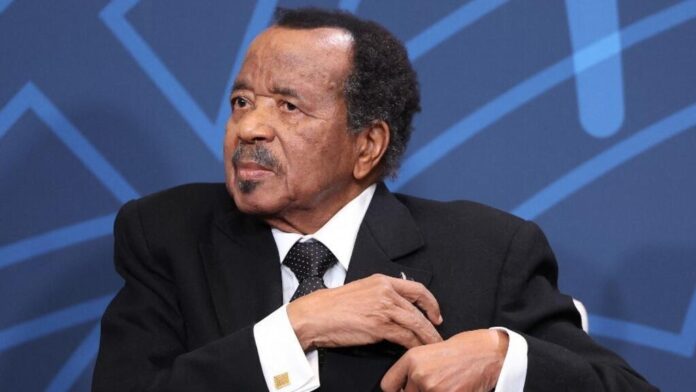At 92, Paul Biya is running for an eighth term as head of state in Cameroon, a country he has ruled unchallenged since 1982. Amid institutional stagnation and political gridlock, this latest bid underscores the exhaustion of a patronage system that, though fraying, still functions with ruthless efficiency.
A Predictable Announcement in a Democracy Without Illusions
It was through a terse post on X that Paul Biya, the world’s oldest serving head of state, confirmed his intent to contest the upcoming October 12, 2025, presidential election. An announcement devoid of suspense, as the regime had long prepared the ground, through motions of support, calls for national unity, and ambiguous diplomatic signals.
The rhetoric of a “servant of the nation” summoned by his people, recycled word for word since 2018, feels more like a ritual than a political decision. There are no surprises left, only habits. President Biya has become the immovable axis of a ceremonial regime where public appearances are rare, opposition is fractured, and institutions are beholden to his will alone.
A Phantom Presidency Still Terrifyingly Effective
The president’s health, shrouded in secrecy, remains a source of persistent speculation. His recent return from Geneva, following weeks of absence, rekindled doubts about his ability to govern. But power now flows by delegation: Ferdinand Ngoh Ngoh, the omnipresent secretary-general of the presidency, has effectively become the system’s operator.
In practice, the Biya system runs like a well-oiled machine: job allocation, ethnically tailored patronage disguised as sociological representation, and a loyal civil service and army. Official Cameroon isn’t a state, it’s a consensus frozen by personal interests and rent-seeking calculations.
Internal Fractures and Breakaway Candidacies
Nonetheless, cracks have begun to form. Prominent figures like Issa Tchiroma Bakary and Bello Bouba Maïgari, both former ministers and long-time regime allies, have declared their own candidacies. While mild, these acts represent ruptures in a party where dissent is typically sidelined.
Biya bypassed the usual party consultation process when declaring his candidacy, which sparked internal unrest. The case of municipal councilor Léon Theiller Onana, who has taken legal action demanding a party congress, illustrates this latent discontent—though it remains constrained by the regime’s rigid verticality.
A Fragmented Opposition, Trapped by Its Own Weakness
Facing this well-tuned machine, the opposition appears trapped in its divisions. Public anger simmers online, voiced by a youth weary of an archaic power structure, yet no figure has emerged as a credible alternative.
Maurice Kamto, the leading opposition figure and former MRC candidate, is attempting a legal sleight of hand by running under the Manidem banner, thus circumventing electoral rules that bar non-parliamentary parties. Yet regime loyalists are already contesting his candidacy, seeking its disqualification.
Cabral Libii, another rising figure, has failed to unify opposition forces around him. And time favors Biya, not his challengers. In authoritarian systems, inertia is strength.
A Renter Economy as Political Safety Net
Despite fragile economic fundamentals, Cameroon retains key resources: hydrocarbons, cocoa, timber, and recently, cotton. The IMF praises a 3.5% GDP growth in 2024, driven by better agricultural yields and improved electricity supply. Yet inflation at 5%, chronic poverty, and failing infrastructure anchor the country in structural stagnation.
The regime knows it well: minimal redistribution, a tightly controlled campaign, and suppression of any “subversive” opposition are sufficient to prolong the status quo.
The Last Praetorian Regime of Francophone Africa
Paul Biya isn’t just a candidate, he is an order, a symbol, a lock. His eighth term is not an ambition but a political inevitability, trapping the country in the stasis of a self-perpetuating regime. His campaign offers no future, only the eternal return of his own reign, under the faded gold of a ghostly republic.



